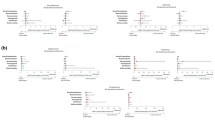Abstract
Objective
We sought to assess the effect of low body mass index (BMI) on short- and long-term outcomes following cardiac surgery.
Methods
This is a retrospective review of a prospectively collected departmental database over a 6-year period. Patients were eligible for the study if the BMI was <25 kg/m2. All morbidities, length of hospital stay, and short- and long-term mortality were reviewed.
Results
There were 704 patients divided into low (n = 71) and normal (n = 633) BMI. Postoperative pulmonary complications were higher in the low BMI group compared to the normal BMI group (24% vs. 11%, P < 0.001) with a higher incidence of in-hospital mortality (10% vs. 5%). Using multiple logistic regression, low BMI was an independent risk factor for in-hospital mortality. The 1-, 3-, and 5-year survivals for the low group were 90%, 78%, and 70% compared to 94%, 86%, and 81% in the normal BMI group.
Conclusion
Low BMI is associated with increased morbidity and mortality following cardiac surgery. Risk scoring systems should utilize the BMI in the preoperative risk assessment with special attention to low BMI.
Similar content being viewed by others
References
Rockx MA, Fox SA, Stitt LW, Lehnhardt K, McKenzie FN, Quantz MA, et al. Is obesity a predictor of mortality, morbidity and readmission after cardiac surgery. Can J Surg 2004;47:34–38.
Villavicencio MA, Sundt TM, Daly RC, Dearani JA, McGregor CC, Mullany CJ, et al. Cardiac surgery in patients with body mass index of 50 or greater. Ann Thorac Surg 2007;83:1403–1411.
Parsonnet V, Dean D, Bernstein AD. A method of uniform stratification of risk for evaluating the results of surgery in acquired adult heart disease. Circulation 1989;79(suppl I):3–12.
Geissler HJ, Holz P, Marohl S, Kuhn-Regnier F, Mehlhorn U, Sudkamp M, et al. Risk stratification in heart surgery: comparison of six score systems. Eur J Cardiothorac Surg 2000;17:400–406.
Nashef SA, Roques F, Michel P, Gauducheau E, Lemeshow S, Salamon R. European system for cardiac operative risk evaluation (EuroSCORE). Eur J Cardiothorac Surg 1999;16:9–13.
Potapov EV, Loebe M, Anker S, Stein J, Bondy S, Nasseri BA, et al. Impact of body mass index on outcome in patients after coronary artery bypass grafting with and without valve surgery. Eur Heart J 2003;24:1933–1941.
Reeves BC, Ascione R, Chamberlain MH, Angelini GD. Effect of body mass index on early outcomes in patients undergoing coronary artery bypass surgery. J Am Coll Cardiol 2003;42:668–676.
Engelman DT, Adams DH, Byrne JG, Aranki SF, Collins JJ Jr, Couper GS, et al. Impact of body mass index and albumin on morbidity and mortality after cardiac surgery. J Thorac Cardiovasc Surg 1999;118:866–873.
Rapp-Kesek D, Stahle E, Karlsson T. Body mass index and albumin in the preoperative evaluation of cardiac surgery patients. Clin Nutr 2004;23:1398–1404.
Gurm HS, Whitlow PL, Kip KE, BARI investigators. The impact of body mass index on short- and long-term outcome in patients undergoing coronary revascularization: insights from the bypass angioplasty revascularization investigation (BARI). J Am Coll Cardiol 2002;39:834–840.
Schwann TA, Habib RH, Zacharias A, Parenteau GL, Riordan CJ, Durham SJ, et al. Effects of body size on operative, intermediate and long-term outcome after coronary artery bypass operation. Ann Thorac Surg 2001;71:521–531.
Florath I, Albert AA, Rosendahl UP, Hassanein WM, Bauer S, Ennker IC, et al. Body mass index: a risk factor for 30-day or six-month mortality in patients undergoing aortic valve replacement? J Heart Valve Dis 2006;15:336–344.
World Health Organisation Consultation on Obesity. Preventing and managing the global epidemic: report of a WHO consultation on obesity. Geneva: WHO; June 1997.
Doddakula K, Al-Sarraf N, Gately K, Hughes A, Tolan M, Young V, et al. Predictors of acute renal failure requiring renal replacement therapy post cardiac surgery in patients with preoperatively normal renal function. Interact Cardiovasc Thorac Surg 2007;6:314–318.
Habib RH, Zacharias A, Engoren M. Determinants of prolonged mechanical ventilation after coronary artery bypass grafting: early versus late extubation. Ann Thorac Surg 1996;62:1164–1171.
Author information
Authors and Affiliations
Corresponding author
Additional information
This study was presented in poster form at the 7th international congress on coronary artery disease, Venice, Italy, October 2007.
Rights and permissions
About this article
Cite this article
Al-Sarraf, N., Raza, A., Rowley, S. et al. Short-term and long-term outcome in low body mass index patients undergoing cardiac surgery. Gen Thorac Cardiovasc Surg 57, 87–93 (2009). https://doi.org/10.1007/s11748-008-0336-6
Received:
Accepted:
Published:
Issue Date:
DOI: https://doi.org/10.1007/s11748-008-0336-6




